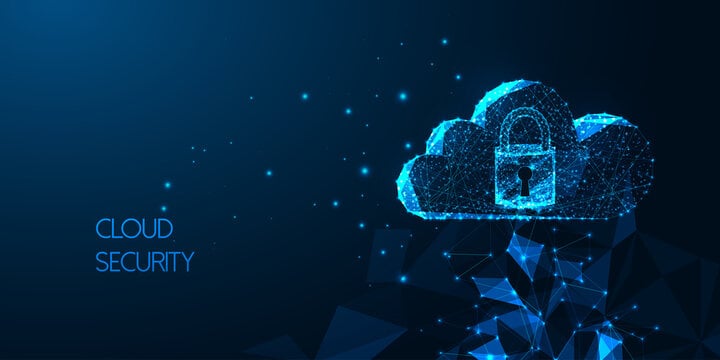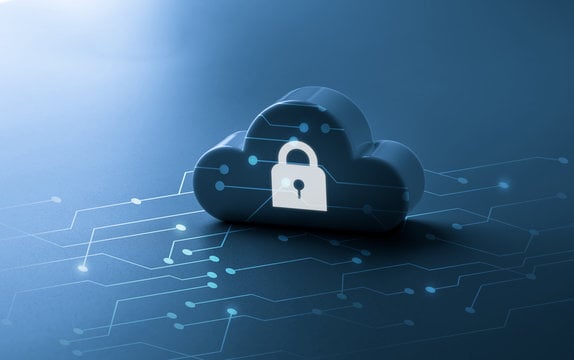According to Statista, the top cloud security concerns are data loss and leakage (69%) and data privacy/confidentiality (66%), followed by accidental exposure of credentials (44%). Despite being aware of these challenges, only one in five organizations evaluate their overall cloud security posture in real-time.
As we step into 2024, the digital landscape continues to burgeon with unprecedented opportunities and challenges alike. Keep reading to discover the essential tactics and strategies that are imperative for achieving security in the realm of cloud computing. From advanced encryption protocols to proactive threat detection mechanisms, we will explore the arsenal of tools at your disposal to effectively secure your digital assets.
Click here to see the 50 Cloud Security Stats you should know in 2024!
Understanding the Importance of Cloud Security
In today's digital landscape, cloud security has become a critical concern for businesses of all sizes. With the increasing reliance on cloud infrastructure, it is essential to understand the importance of cloud security and its implications for your organization. Cloud security involves the protection of data, applications, and infrastructure hosted in the cloud from unauthorized access, data breaches, and other threats.
By implementing robust cloud security measures, you can safeguard sensitive information, maintain data integrity, and ensure business continuity. Cloud security is not just a responsibility of the cloud service provider; it requires a shared responsibility model where both the provider and the customer play a role in securing the cloud environment.
Comprehending the significance of cloud security sets the groundwork for deploying efficient security measures for your cloud infrastructure in 2024.

Implementing Robust Authentication and Access Controls
According to Palo Alto's Cloud Threat Report, 76% of organization don't enforce MFA for console users, and 58% of organizations don't enforce MFA for root/admin users.
One of the key best practices for cloud security in 2024 is implementing robust authentication and access controls. Strong authentication mechanisms such as multi-factor authentication (MFA) and biometric authentication should be employed to ensure that only authorized individuals can access the cloud resources.
To bolster the security of your cloud infrastructure, it is imperative to have precise access controls that allow you to assign distinct levels of access based on user roles and responsibilities. By implementing a strong access control system, you can ensure that only authorized individuals have access to sensitive data and resources within your cloud environment.
By regularly reviewing and adjusting user permissions, you can revoke access for individuals who no longer require it or who have changed roles within the organization. This proactive approach ensures that only those with a legitimate need for access can gain entry, minimizing the risk of unauthorized access attempts.
By incorporating these strong authentication and access control measures, you can substantially minimize the likelihood of unauthorized access to your cloud infrastructure. These practices form the foundation of a robust security strategy, safeguarding your organization's valuable data and maintaining the integrity of your cloud environment.
Leveraging Encryption to Safeguard Data
Data encryption is an essential practice for safeguarding sensitive information in the cloud. By encrypting data at rest and in transit, you can ensure that even if it is intercepted or accessed by unauthorized parties, it remains unreadable and unusable.
Encryption is a vital practice for ensuring the security and privacy of data stored in the cloud. By leveraging encryption technologies such as the advanced encryption standard (AES), you can add an extra layer of protection to your cloud infrastructure. AES is widely recognized as a secure and reliable encryption algorithm, making it an ideal choice for safeguarding sensitive information.
In addition to encrypting data at rest, it is equally important to encrypt data in transit between your organization and the cloud service provider. This can be achieved by using secure communication protocols such as SSL/TLS (Secure Sockets Layer/Transport Layer Security). SSL/TLS encryption ensures that data transmitted over networks remains confidential and cannot be intercepted or tampered with by unauthorized individuals.
The implementation of encryption technologies not only enhances the security of your cloud infrastructure but also makes it significantly more challenging for attackers to gain access to your sensitive data. Even if they manage to intercept the encrypted data, they will be unable to decipher it without the encryption keys.
By prioritizing encryption as a fundamental component of your cloud security strategy, you can establish a robust defense against unauthorized access and safeguard your organization's valuable data. Remember, encryption is not a one-time solution but an ongoing practice that must be maintained and updated regularly to withstand evolving cybersecurity threats.

Regularly Monitoring and Auditing Cloud Systems
Continuous monitoring and auditing of your cloud systems are crucial to detect and respond to security incidents in a timely manner. Implementing robust logging and monitoring solutions that provide real-time visibility into your cloud infrastructure is essential for maintaining a secure environment.
By regularly reviewing logs and analyzing security events, you can gain valuable insights into potential vulnerabilities or suspicious activities within your cloud environment. This proactive approach allows you to identify and address security risks before they escalate, ensuring the ongoing protection of your sensitive data.
As we step into the new year, the significance of continuous monitoring and auditing of cloud systems cannot be emphasized enough. With the ever-changing landscape of threats and the increasing sophistication of cyberattacks, organizations must remain vigilant in their efforts to safeguard their cloud infrastructure.
By adopting a proactive approach to monitoring and auditing, you can stay ahead of potential threats and guarantee the security and compliance of your cloud environment. These proactive measures not only protect your sensitive data but also ensure the overall integrity and compliance of your valuable cloud infrastructure.
Partnering with Reliable Cloud Security Companies
To enhance the security of your cloud infrastructure, consider partnering with reliable cloud security companies. These companies specialize in providing advanced security solutions and services tailored to the unique requirements of cloud environments.
When choosing a cloud security provider, it is essential to consider various factors, including their expertise, reputation, and track record. Look for companies that offer a comprehensive range of security solutions, such as Microsoft, Barracuda, and AWS, which encompass threat detection, incident response, and vulnerability management. Additionally, ensure that the chosen company aligns with industry-standard security frameworks and compliance regulations to ensure the highest level of protection for your cloud infrastructure.
Datalink Networks Can Help
By partnering with a reliable cloud security company, you can leverage their expertise and resources to enhance the overall security posture of your cloud infrastructure.
Curious to explore further on how your organization can implement robust cloud security measures? Get in touch with us now and engage in a conversation with our team of experienced account executives.
Discover the possibilities and gain valuable insights into securing your cloud infrastructure. Don't miss out on this opportunity to take your cloud security to the next level!




